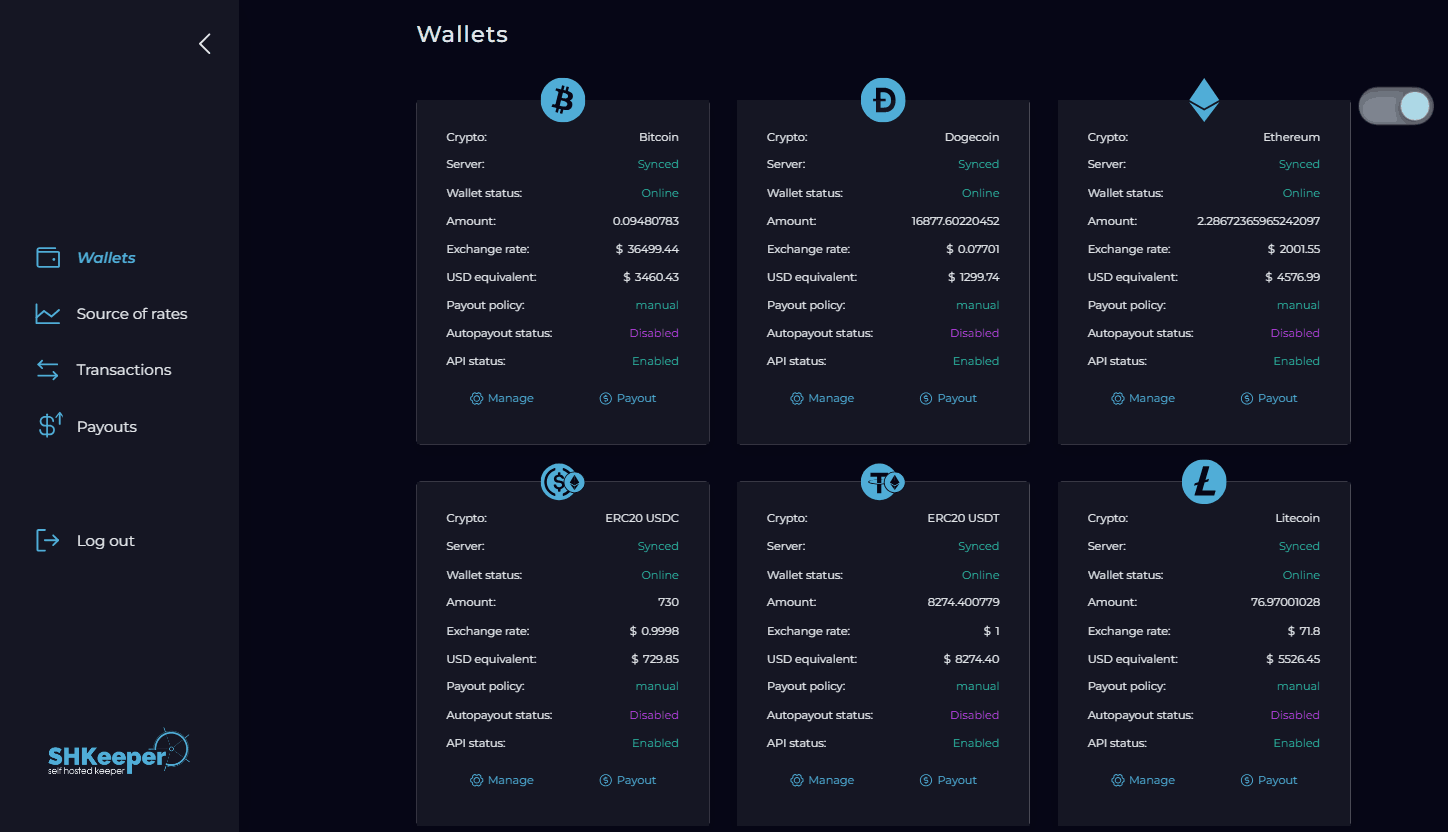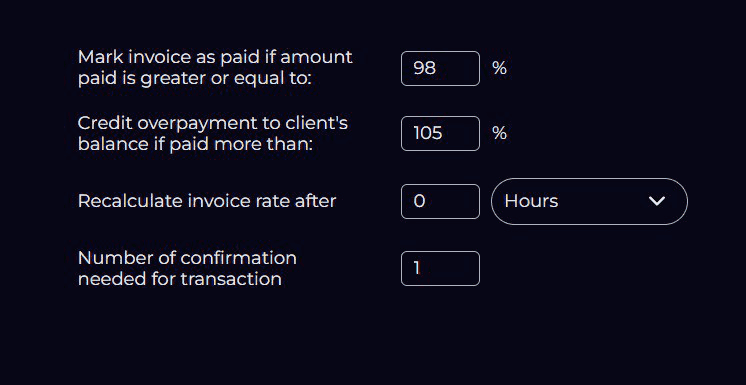Summary
The SHKeeper non-custodial crypto processor is a cutting-edge solution designed by VSYS Host for secure, decentralized cryptocurrency transactions. This review explores its features, advantages, and why non-custodial processing is the preferred choice for those who value control, security, and privacy in their financial operations.
What is Cryptocurrency Payment Processing?
Cryptocurrency payment processing is the process of managing and handling transactions made using cryptocurrencies like Bitcoin, Ethereum, and others. This type of processing acts as an intermediary between buyers and sellers, enabling secure, fast, and decentralized payments without relying on traditional banking systems.
What Sets Non-Custodial Processing Apart from Custodial Processing?
Non-custodial processing aligns with the original vision of Satoshi Nakamoto, offering a decentralized approach where users maintain full control over their funds. In contrast, custodial processing involves relying on third-party services to manage and store funds, which introduces different risks and limitations.
Comparison of Non-Custodial and Custodial Processing:
| Non-Custodial | Custodial | |
| Pros | 1. You have full control over your funds.
2. No third-party fees, making it cost-effective for large volumes. 3. No risk of account suspension. 4. No KYC.
|
1. Easy to set up.
2. No need to especially manage native token balances. 3. Access to fiat-to-fiat exchange within the platform.
|
| Cons | 1. More complex installation and setup. A server is required.
2. You need to manage native token balances. 3. If fiat-to-fiat exchange is needed, integration with a custodial solution is required. In most cases, it requires custodial functionality (except for coins within the same blockchain). 4. You are solely responsible for your own cybersecurity.
|
1. Charge a fee in %, which isn’t cost-effective for large volumes.
2. You have no control of your funds. 3. There’s a risk of account suspension (e.g., for receiving tainted funds or even just large amounts). 4. Platform bankruptcy – the platform could collapse (remember FTX). 5. KYC is required.
|
How Non-Custodial Processing Works
Non-custodial processing offers a secure and decentralized way to manage transactions without holding users’ funds. This API is designed for eCommerce platforms or systems that manage user balances and invoicing. To accurately track transactions, the API generates unique, zero-balance addresses for each invoice. Funds are credited to these specific addresses, ensuring precise tracking for each user. Since each transaction requires a dedicated address, the processing system automatically creates these addresses. Unlike regular wallets that contain multiple addresses. This method ensures that transactions are traceable and secure. Non-custodial processing enhances transparency and control, providing a tailored solution for platforms needing reliable transaction management.
Review of SHKeeper – Crypto Payment Processor
What is SHKeeper?
SHKeeper is a self-hosted, open-source cryptocurrency payment processor, making it a non-custodial solution. It uniquely combines a gateway and merchant platform, enabling the acceptance of various cryptocurrencies without fees or intermediaries.
SHKeeper provides direct payment options for BTC, ETH, LTC, DOGE, XMR, XRP, TRX, BNB, MATIC, AVAX, USDT (ERC20, TRC20, BEP-20, Polygon, Avalanche), and USDC (ERC20, TRC20, BEP-20, Polygon, Avalanche). Work is ongoing to add more coins, with SOL and TON on the roadmap.
SHKeeper provides a distinct non-custodial solution for cryptocurrency payment processing with no direct competitors. Its functionality, features, and range of supported coins are unmatched in the market.
How Does SHKeeper Work and Why It’s Essential for Your Crypto Payments
SHKeeper is a self-hosted solution that you can install on your own servers, ensuring that no third parties have access. It functions independently as software.
SHKeeper comes with an API, and it’s important to understand what system do you use to integrate it properly. Depending on your setup, you can use the provided API documentation or develop your own module. For popular platforms like WooCommerce, WHMCS, PrestaShop, OpenCart, and Magento, there are pre-built modules available on SHKeeper’s GitHub for free. SHKeeper can also be integrated with other systems, popular CMS platforms, custom code, or products.
SHKeeper primarily operates by generating and monitoring unique cryptocurrency addresses for each invoice. It’s crucial to have your own system—whether it’s a CRM, back-office software, online store, or similar platform—to handle client interactions and create these invoices.
Once your system generates an invoice and the client selects a cryptocurrency, your system calls the API to SHKeeper’s gateway. SHKeeper then provides a unique cryptocurrency address along with the exact payment amount. It continuously monitors this address and, upon receiving the funds, initiates an API callback to your system or store to confirm the transaction.
SHKeeper is a fully self-hosted software solution, meaning no third party processes payments or charges transaction fees. Standard blockchain/network fees apply for pay-ins or payouts.
For non-native tokens like USDT or USDC, it’s essential to maintain a balance of native tokens like ETH or TRX to cover associated network fees for payouts. The gateway manages these fees, but maintaining a positive balance of native tokens is mandatory.
What Do You Need?
- First, determine which cryptocurrencies you want to accept for your transactions.
- Next, choose a server with suitable specifications based on the cryptocurrencies you plan to use. You can either host full nodes on your own server or use full nodes provided by the SHKeeper team (or public nodes) for free, reducing the required server specifications.
- Set up the server following the instructions provided, or reach out to the SHKeeper team for assistance.
- Moreover, set up the necessary passwords and carefully configure SHKeeper to ensure it functions correctly within your environment.
- Then, create a module using the API to integrate SHKeeper into your project. Free modules are available on SHKeeper’s GitHub for WooCommerce/WordPress, WHMCS, PrestaShop, OpenCart, and Magento.
Please Note: It is crucial to have a system in place, whether it’s a CRM, back-office software, online store, or similar platform, to manage client interactions and generate invoices.
Now, let’s explore the key features that make SHKeeper an essential component of any cryptocurrency payment system.
SHKeeper Features in Detail
Non-Custodial
Full control over private keys, ensuring that assets are accessible only to the owner, unlike custodial services like Binance or MetaMask.
Multi-Currency
SHKeeper supports direct payments in BTC, ETH, LTC, DOGE, XMR, XRP, TRX, BNB, MATIC, AVAX, USDT (ERC20, TRC20, BEP-20, Polygon, Avalanche), and USDC (ERC20, TRC20, BEP-20, Polygon, Avalanche). New coins like Solana and TON are in the nearest roadmap.
No Third Parties
Significantly enhances privacy and security for users and their clients.
Direct Crypto Payments
Users receive payments directly from their customers without intermediaries.
No Transaction Fees to Third Parties
Unlike other platforms that take a cut of each transaction.
Customizable Exchange Rates and Fees
Users can set their own exchange rates and fees, either as a fixed amount or a percentage.
Overpayment Credit
If a customer overpays, SHKeeper credits the excess to their balance and notifies the user.
Partial Payments
SHKeeper supports partial payments.
Auto Payments to Cold Wallets
Users can set up automated payments to cold wallets based on a schedule or accumulated amount.
No KYC Required
SHKeeper does not require users to undergo verification procedures.
Easy Payment Buttons
SHKeeper offers a simple and user-friendly interface. Payment buttons are easy to integrate into various platforms, and the SHKeeper team is available to assist if needed.
Why Choose Non-Custodial Processing?
Non-custodial processing provides greater security, control, and privacy. It aligns with the decentralized principles of cryptocurrency, empowering users to manage their funds without intermediaries. While custodial solutions might offer convenience, they come with significant trade-offs in terms of hacks, disruptions and control. For those who value independence and wish to minimize risk, non-custodial processing is the preferred choice.
Conclusion
SHKeeper offers a robust and flexible solution for managing cryptocurrency payments, providing full control over transactions without the need for intermediaries. Its self-hosted nature ensures enhanced security, privacy, and independence, making it an ideal choice for businesses looking to integrate cryptocurrency payments seamlessly. With support for a wide range of cryptocurrencies and easy integration options, SHKeeper stands out as a reliable and efficient tool for modern crypto payment processing in non-custodial way. By implementing SHKeeper, businesses can streamline their payment processes, reduce costs, and maintain complete control over their financial operations.
For more information, visit the SHKeeper GitHub page, shkeeper.io site or contact friendly team directly.








